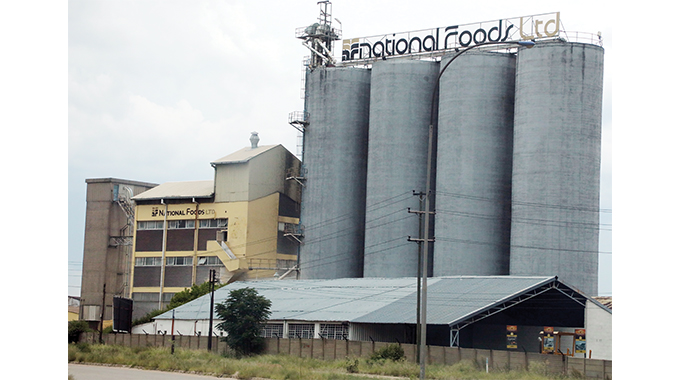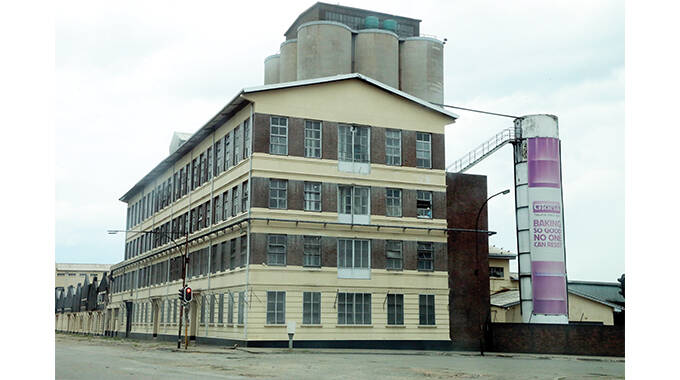National Foods on expansion drive

Leonard Ncube, Victoria Falls Reporter
Leading food manufacturer National Foods Limited (NFL) has invested millions in setting up state-of-the-art processing plants to replace old mills and ramp up production in the country.
Starting last year, NFL has invested US$30 million into a hi-tech flour-making plant in Bulawayo to replace the 72-year-old mill and ramp up production by more than 2 000 tonnes, and other plants in Harare.
This comes as NFL is celebrating 103 years since establishing operations in Zimbabwe. The company produces human and livestock feed that have become part of every Zimbabwean household throughout the century.

It recently delisted from the Zimbabwe Stock Exchange where it had been trading since 1975 and last Friday listed on the foreign-currency-denominated Victoria Falls Stock Exchange to unlock value and increase production as it chases a value addition and industrialisation drive in line with the Second Republic’s economic transformation agenda targeted at an upper middle income society by 2030.
The new plant is expected to be running in March this year and the company expects to increase production by 2 000 tonnes per month, boost the agriculture sector through demand for raw materials, improve quality and consistency of products and capacity and create more jobs in line with Government thrust of improving livelihoods.
NFL currently produces more than 600 000 tonnes across its product portfolio per year, translating to over 50 000 tonnes per month.
The company’s board chair Mr Godfrey Gwainda said the company remains positive on the outlook and the future of Zimbabwe’s economy and is making substantial investments into both existing as well as other new categories.
“Over the course of 2022 and into 2023, a total of US$30 million will be invested with some of the key investments including a new and much more efficient flour mill that will be installed in Bulawayo to replace existing equipment with a state-of-the-art flour mill supplied by the Buhler Company of Switzerland,” he said.
Mr Gwainda said National Foods’ thrust is changing technology from the old system used over the years and putting new technology that has the capacity to boost production and product quality.
“We are also putting a feed mill and we can’t be left behind as a people and as a country,” he said.
Mr Gwainda said a new cereal breakfast plant has been built in Harare and this has led to introduction of a new product range.
In line with Government import substitution drive under NDS1, NFL will also invest in a new pasta plant and biscuit plant in Harare.

Money – Image taken from Pixabay
This will be the first large-scale pasta line in the country and seeks to cater for the needs of consumers who are increasingly looking for a wider variety of food options, said Mr Gwainda.
Significant investment is also being made to upgrade the stock feed plant in Aspindale, Harare.
The company believes the investments will be beneficial to the country through localised manufacture of products that were previously imported, improve health and nutrition, meet international standards, increase support for local industry and job creation in the value chain through improved industrialisation.
Mr Gwainda said for the investments to be successful, there was need to rigorously fund agriculture.
NFL chief executive Mr Mike Lashbrook said the Bulawayo depot manufactures one third of the company’s its entire volume.
“We always want to buy local hence the production investments. We manufactured in Bulawayo for many years going back 103 years ago and one of the initial plants was in Bulawayo.

National Development Strategy 1 (NDS1)
“The exciting development that is taking place is that we are replacing the flour mill at our Basch Street mill and putting brand new state-of-the-art equipment.
He said the company is excited by its new products.
Industry and Commerce Minister Dr Sekai Nzenza who was guest of honour at the listing ceremony said NFL’s strategy to move up the value chain through value addition in its portfolio of basic cereal products is in line with NDS1.

Industry and Commerce Minister Dr Sekai Nzenza
The investments will result in the production of 190 000 tonnes of cereals per annum generating a revenue in the region of US$380m to US$400m and creating 1 000 direct jobs in addition to the current employment of 1 550 workers.
“This increased productivity in the country and the resultant import substitution is a significant contribution to the country’s US$8 billion Manufacturing and Commercial Sector Roadmap,” she said. — @ncubeleon











Comments